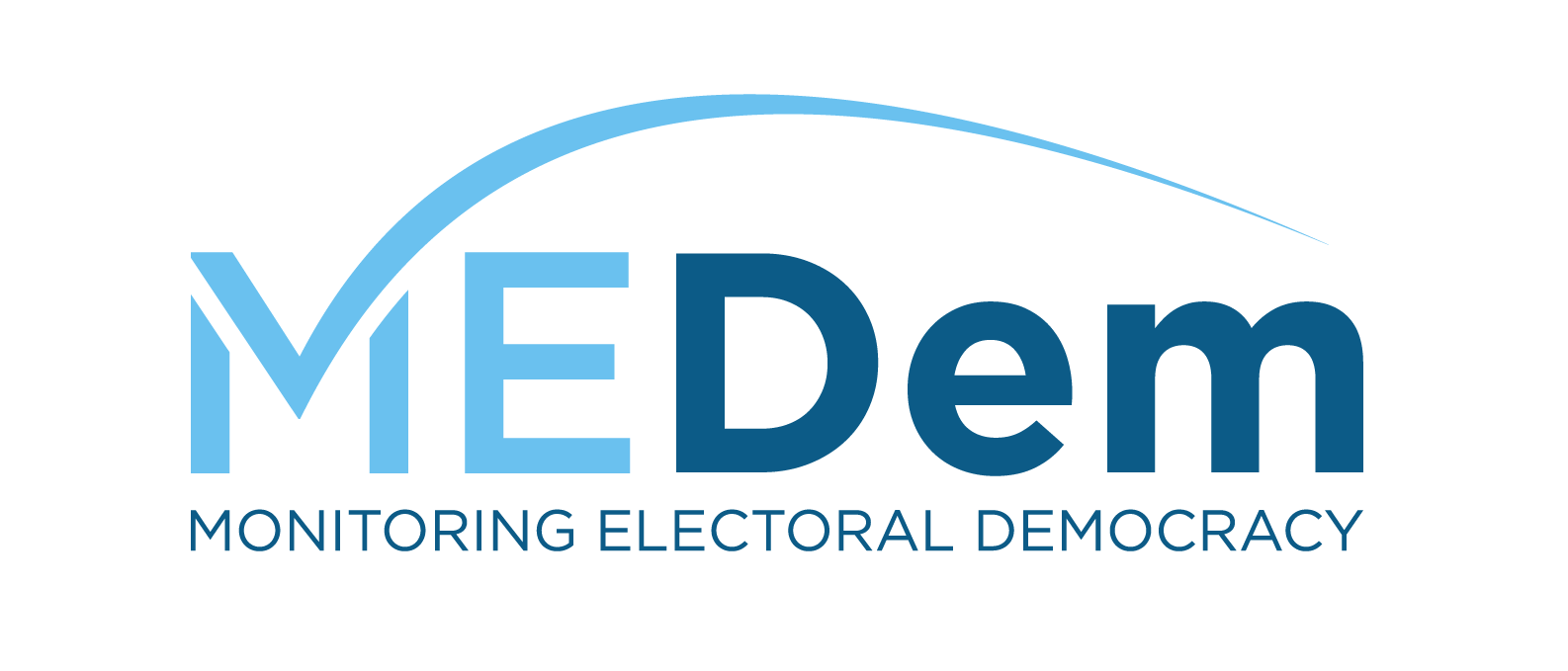From Data to Impact: MEDEM CONFERENCE 2025
The 3rd MEDem Conference took place at GESIS – Leibniz Institute for the Social Sciences in Cologne. Over the course of two days, researchers, policymakers, and data experts came together to exchange insights on the needs of data-driven democracy research. The event brought together inspiring keynotes, lively discussions, and hands-on tool demonstrations, creating space for exchange and collaboration. This report combines detailed summaries with photo highlights, providing a comprehensive record of the 3rd MEDem Conference.
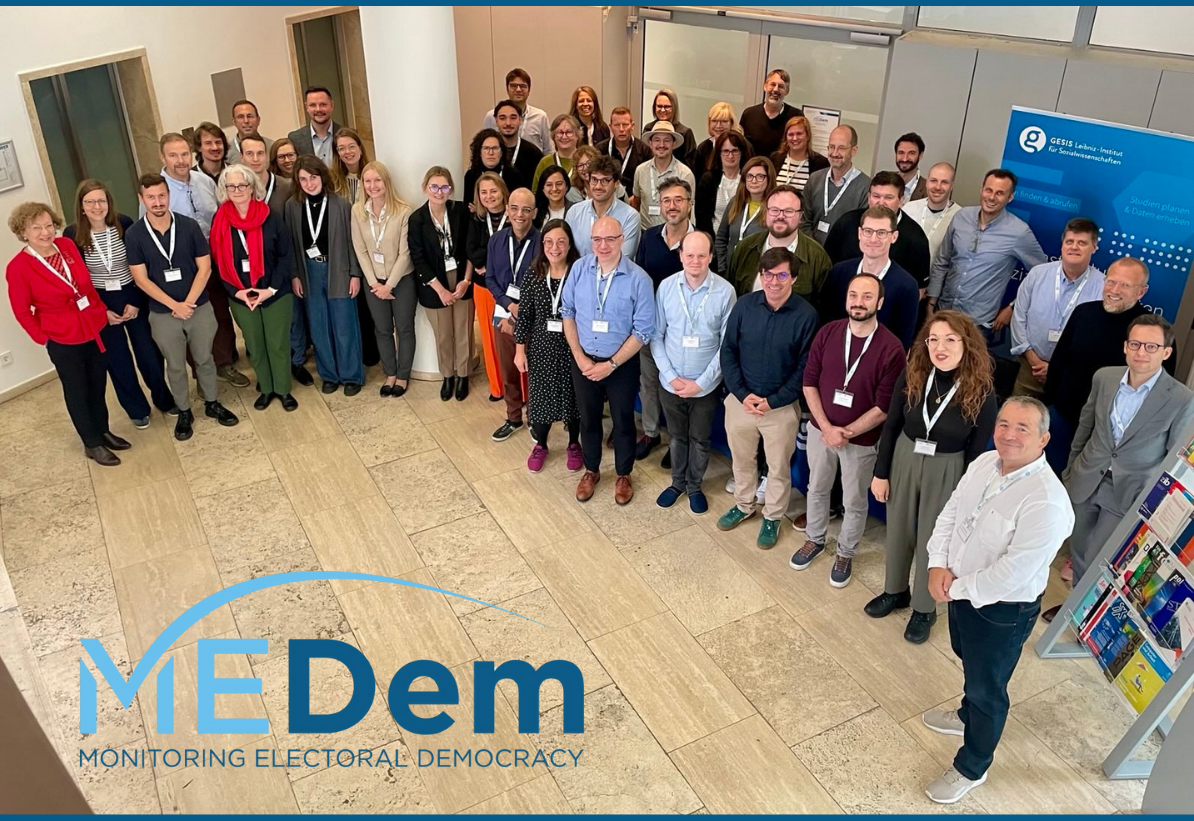
Day 1 - Keynotes, Networks, and the State of MEDem
The MEDem Conference opened with welcoming remarks by Alexia Katsanidou (GESIS, MEDem BoD), who guided participants into two days of exchange and reflection. The first speech was given by Uta Grund from the German Federal Ministry of Research, Technology, and Space. Drawing on the fact that MEDem shares its name with a river in northern Germany, she offered a memorable image of the infrastructure’s role:
“Just like the river, MEDem is formed by the merging of many previously unconnected data streams. And just as the river Medem is vital for the region in Lower Saxony, the MEDem infrastructure will be vital for the future of democracy research, taking it to a new level.” – Uta Grund (German Federal Ministry of Research, Technology, and Space)
Ralf Heinen, Deputy Mayor of Cologne, followed with a reflection on the city’s long tradition as a place of openness and tolerance, underlining why vibrant democracies need strong and inclusive communities at their core. Christof Wolf, President of GESIS, then highlighted the importance and impact of social science research, not only for advancing academic knowledge but also for strengthening democracy and society more broadly.
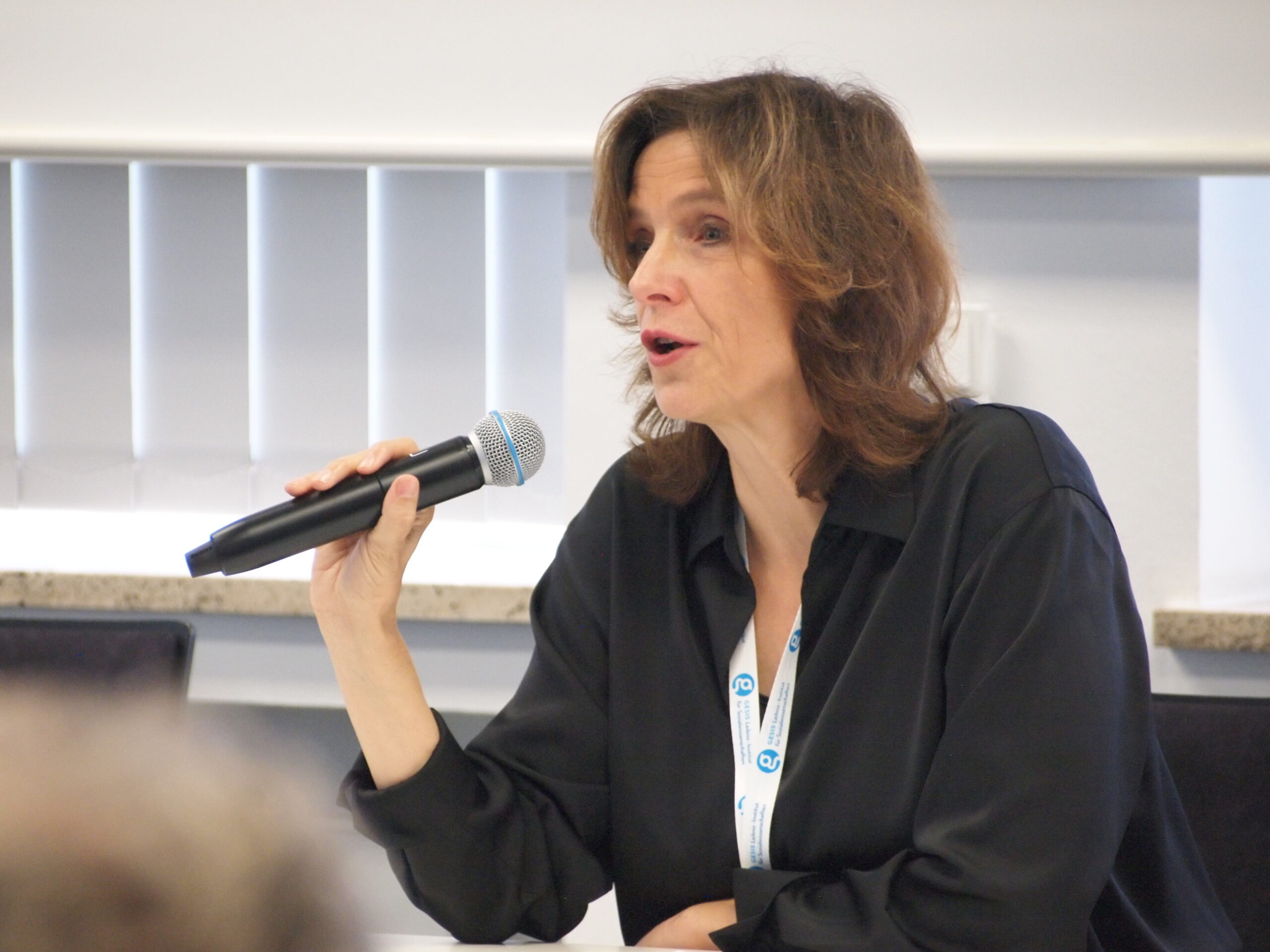
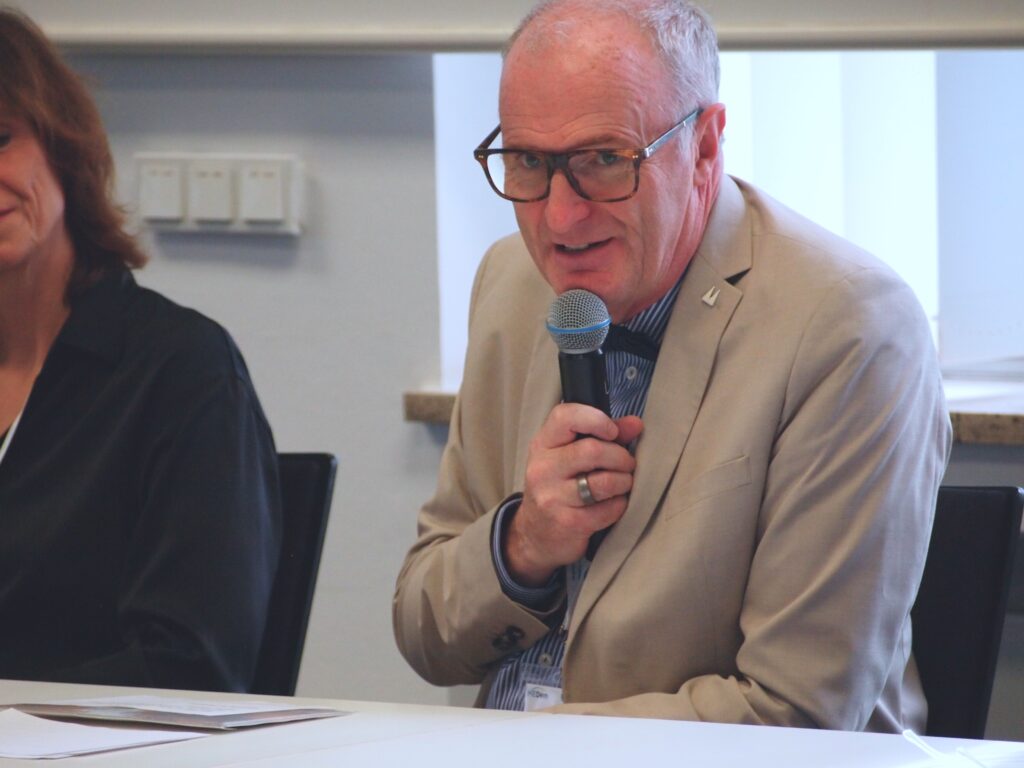
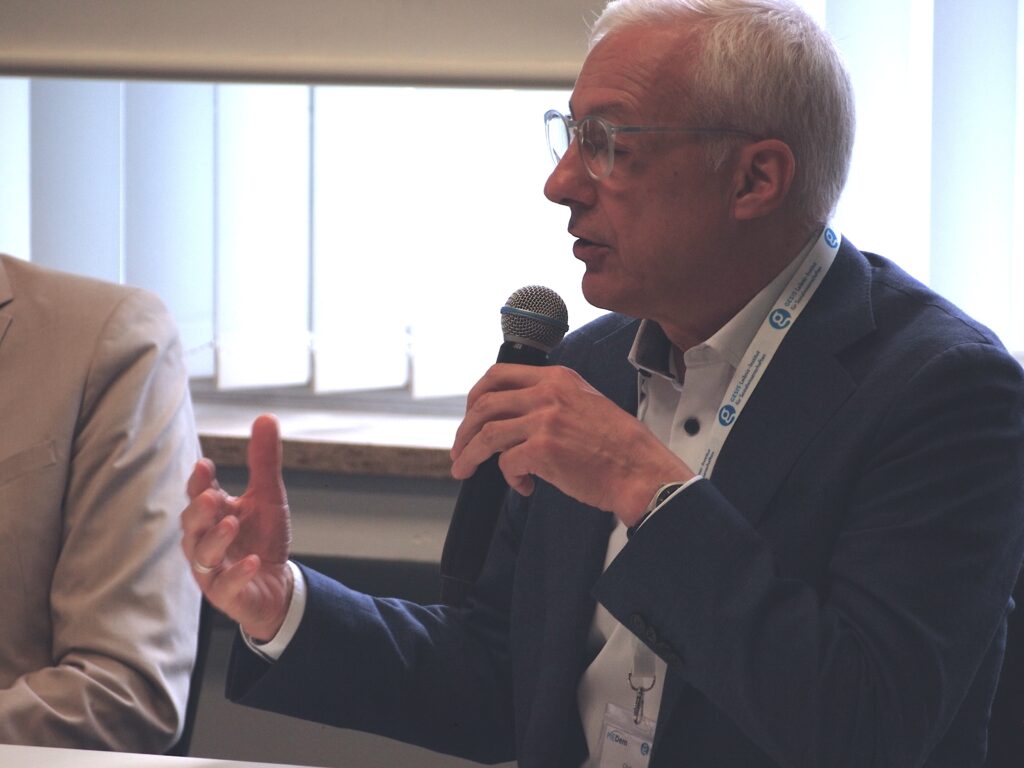
The first day continued with two inspiring keynote lectures. Sarah de Lange (University of Amsterdam) explored how radical-right ideas gradually become normalized and what this means for the resilience of democratic institutions. Simon Munzert (Hertie School) highlighted the urgent need to consolidate and connect democracy data across Europe. Both talks sparked lively discussions and set the tone for the debates that followed.
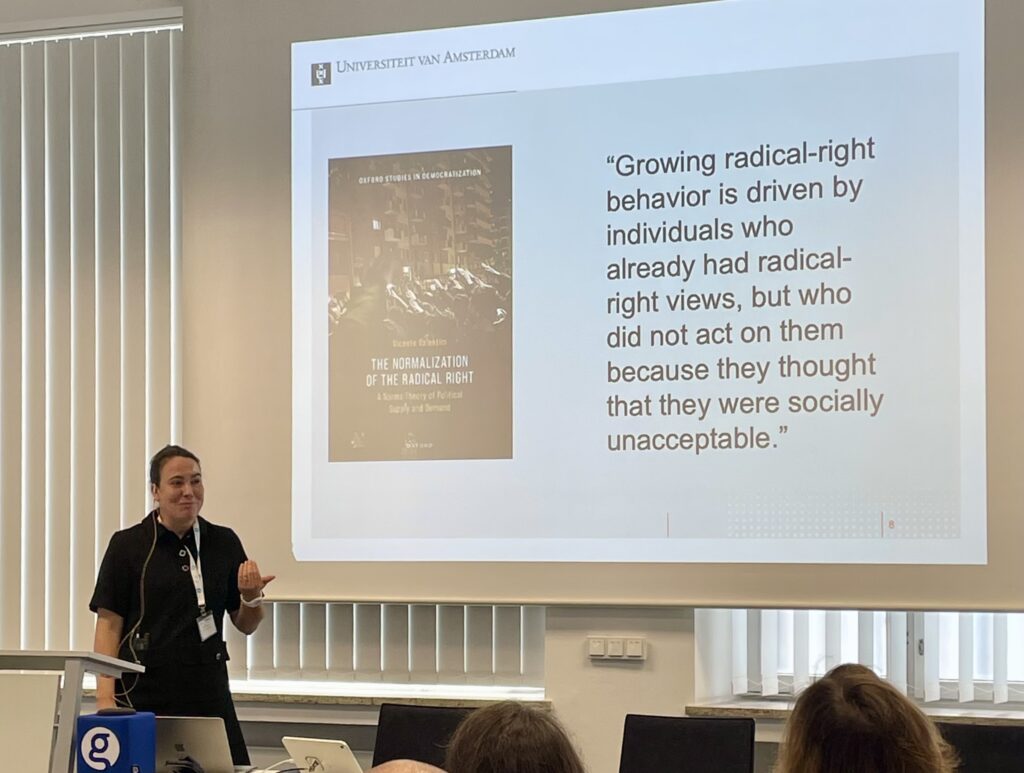
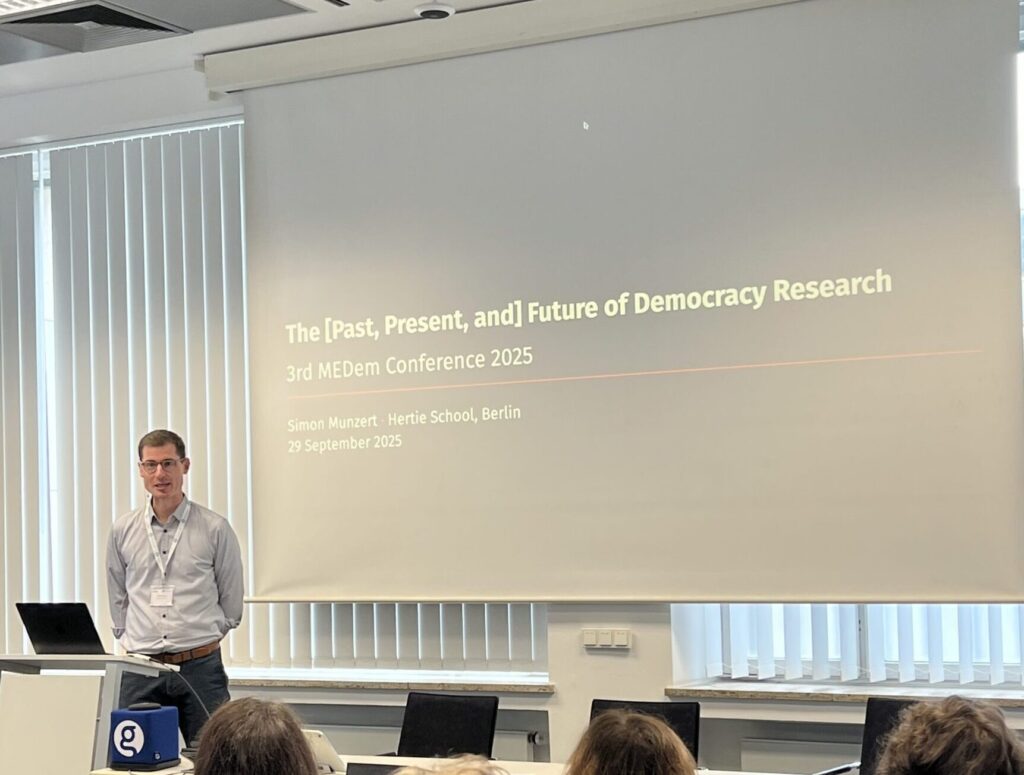
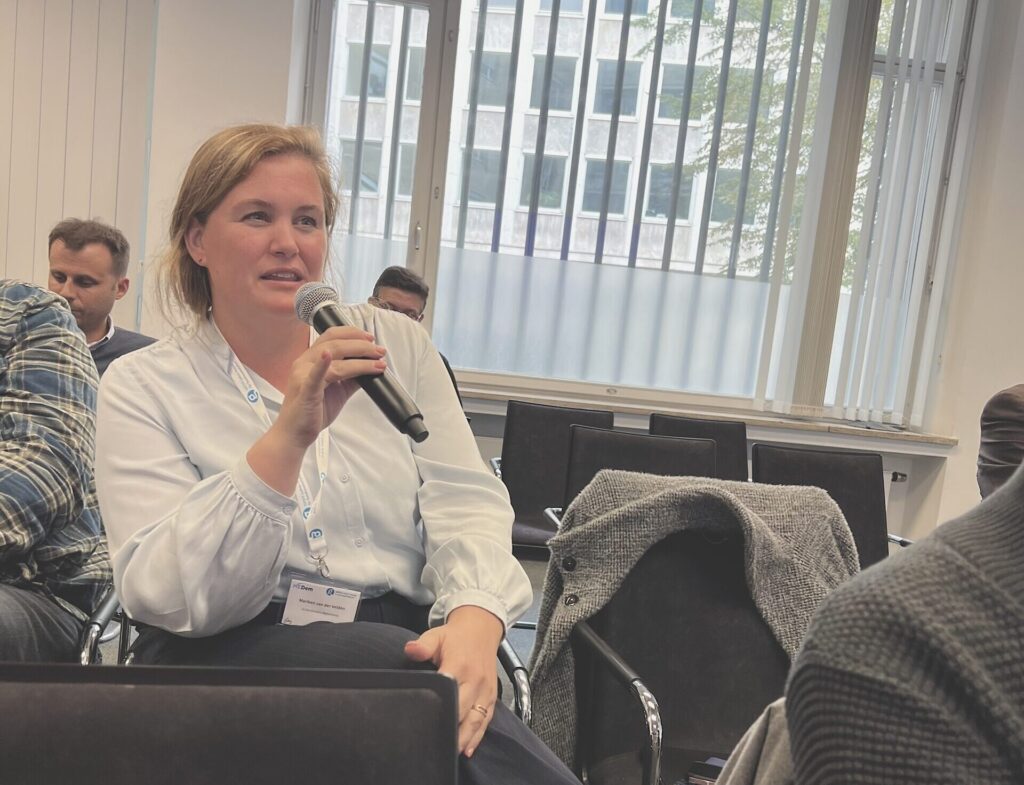
In the afternoon, Hajo Boomgaarden and Sylvia Kritzinger (University of Vienna, MEDem BoD) reflected on the state of MEDem. They introduced the MEDem Team and the MEDem Service Centers working across Europe, highlighting the progress already made while also pointing to the challenges that still lie ahead.
The day also featured the first MEDem Tool demonstration, presented by Lorenzo De Sio (LUISS, MEDem BoD), who introduced ATLAS, a “living encyclopedia” designed to make democracy data findable, comparable, reusable, and linkable. Discover more about ATLAS — and explore it yourself in its minimum viable product version — via MEDem Platform.
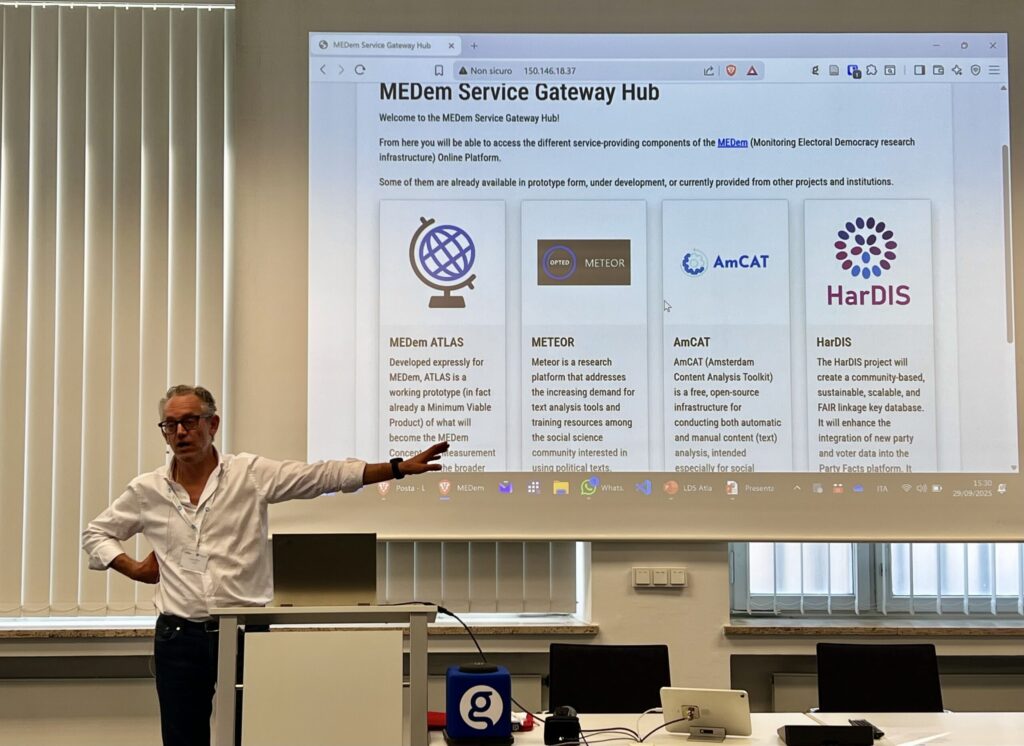
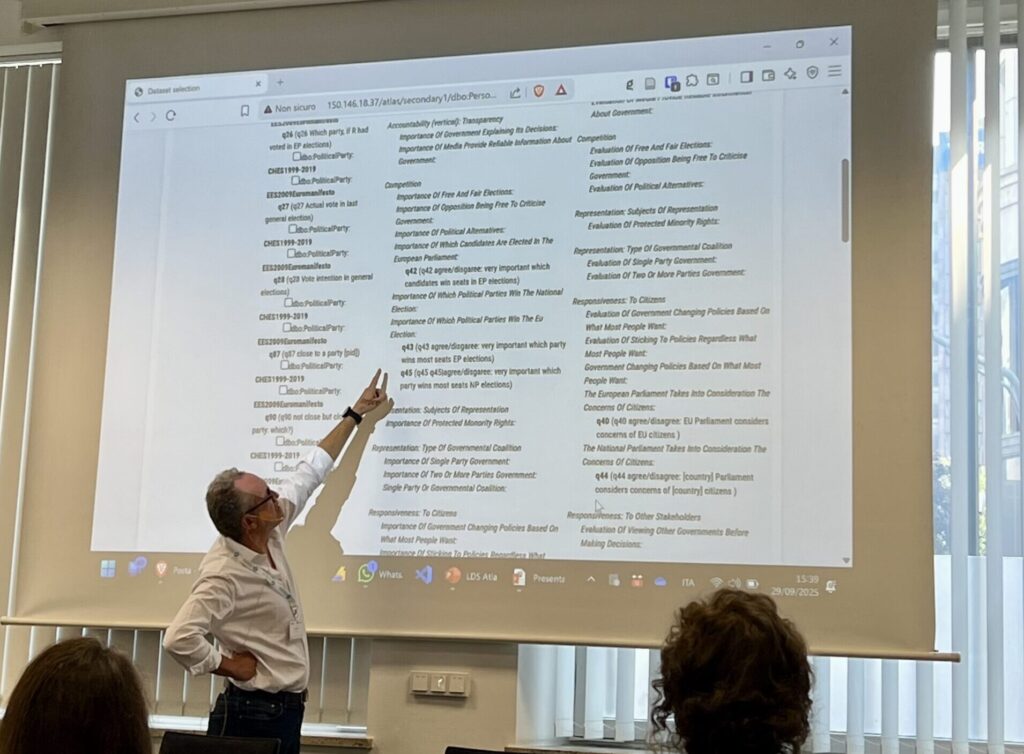
Another highlight of the first day was the short presentations by MEDem Data Networks and Infrastructure Collaborators. Each network introduced its mission, data resources, and future plans — ranging from election studies and population surveys to analyses of media coverage, party manifestos, conflict data, and infrastructure collaborators such as ICPSR and CLARIN. Together, these presentations showcased the diversity of the MEDem Community, opening the floor for lively discussions on how these resources can be linked and utilized more effectively in future research.
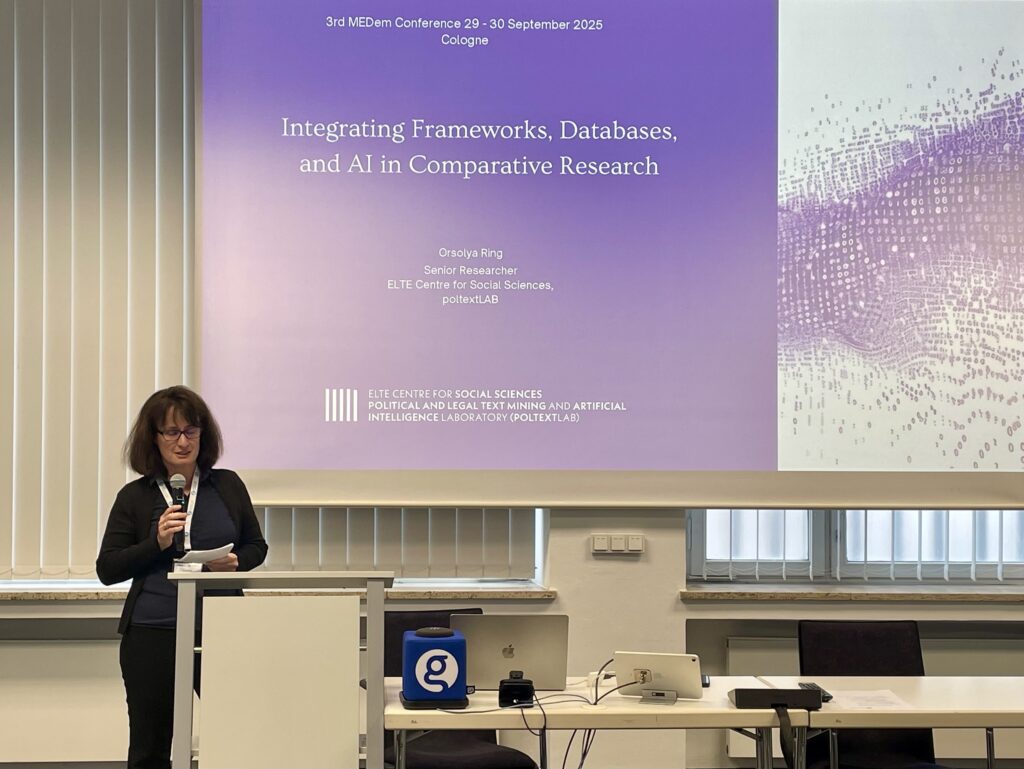
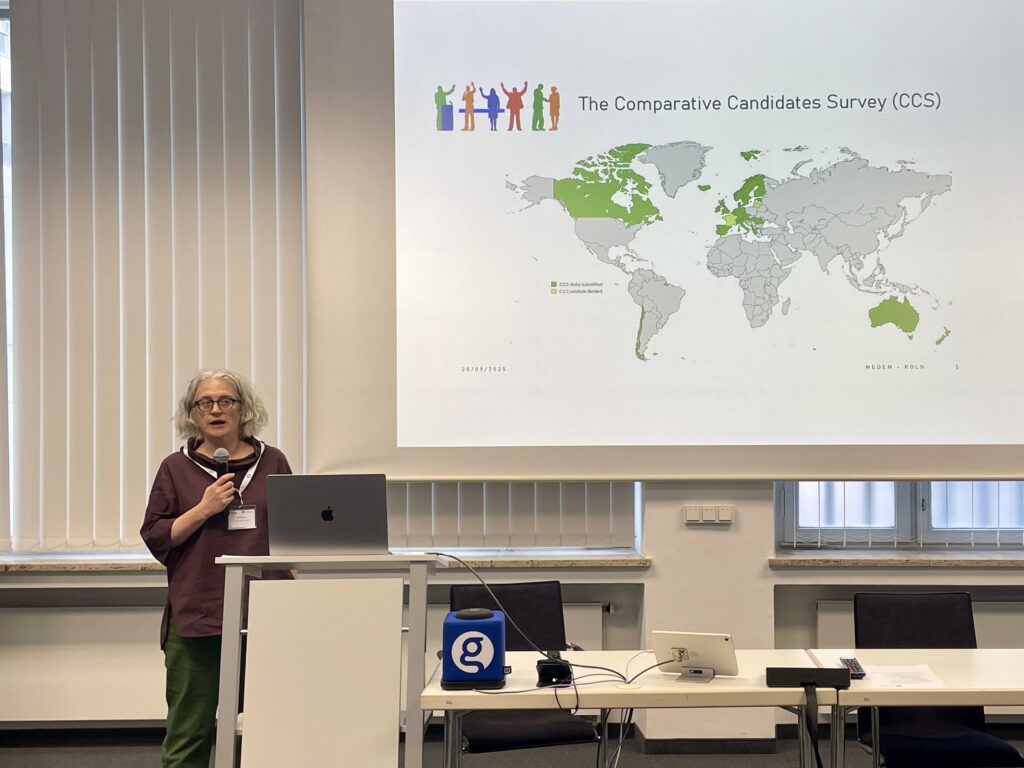
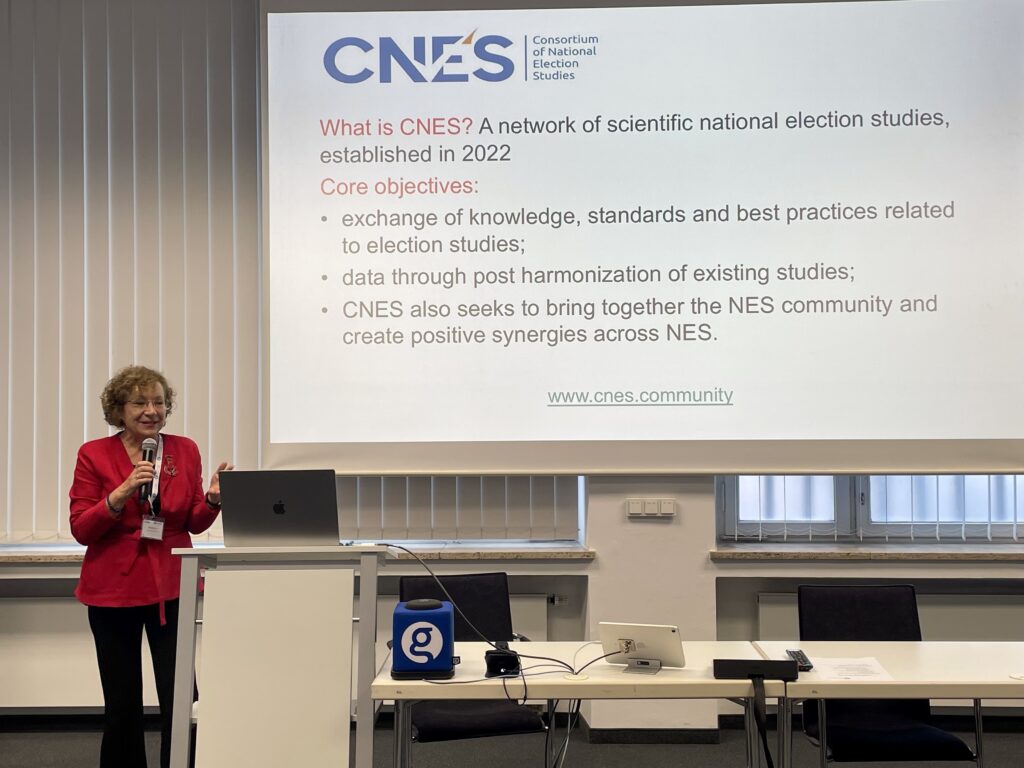
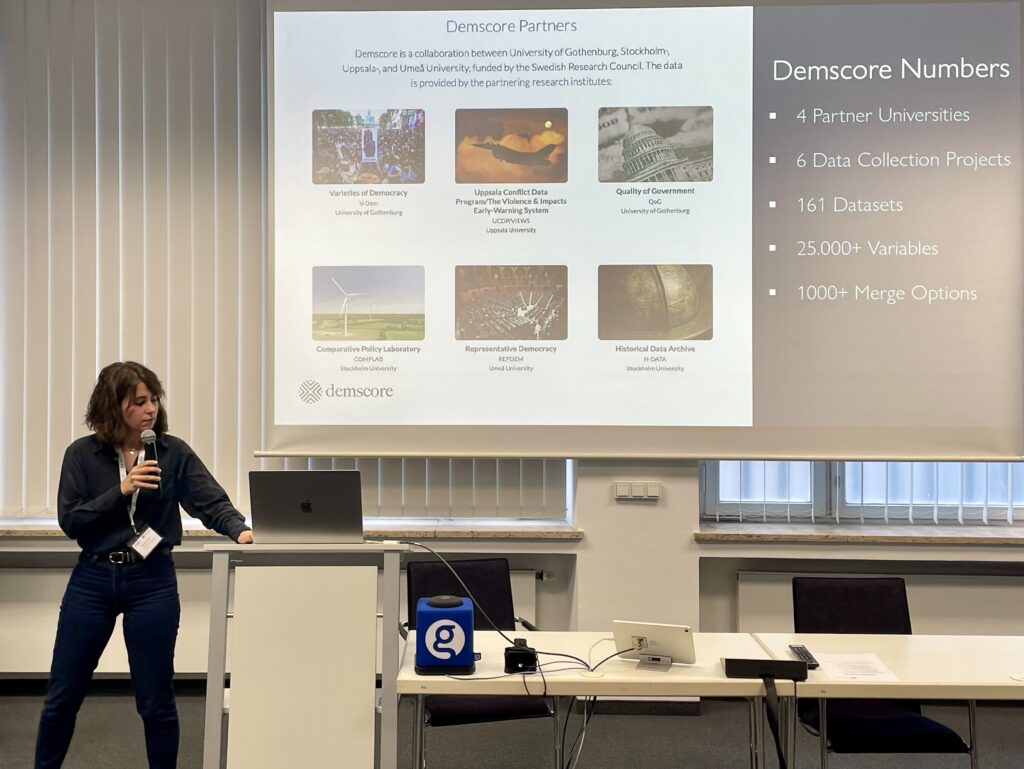
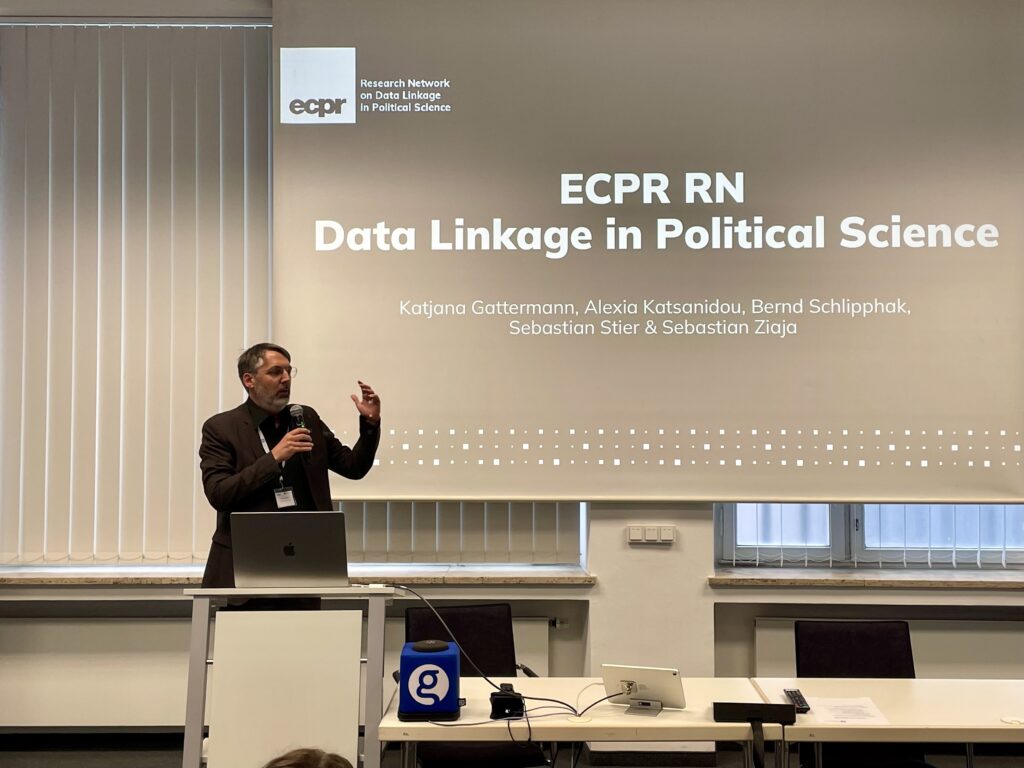
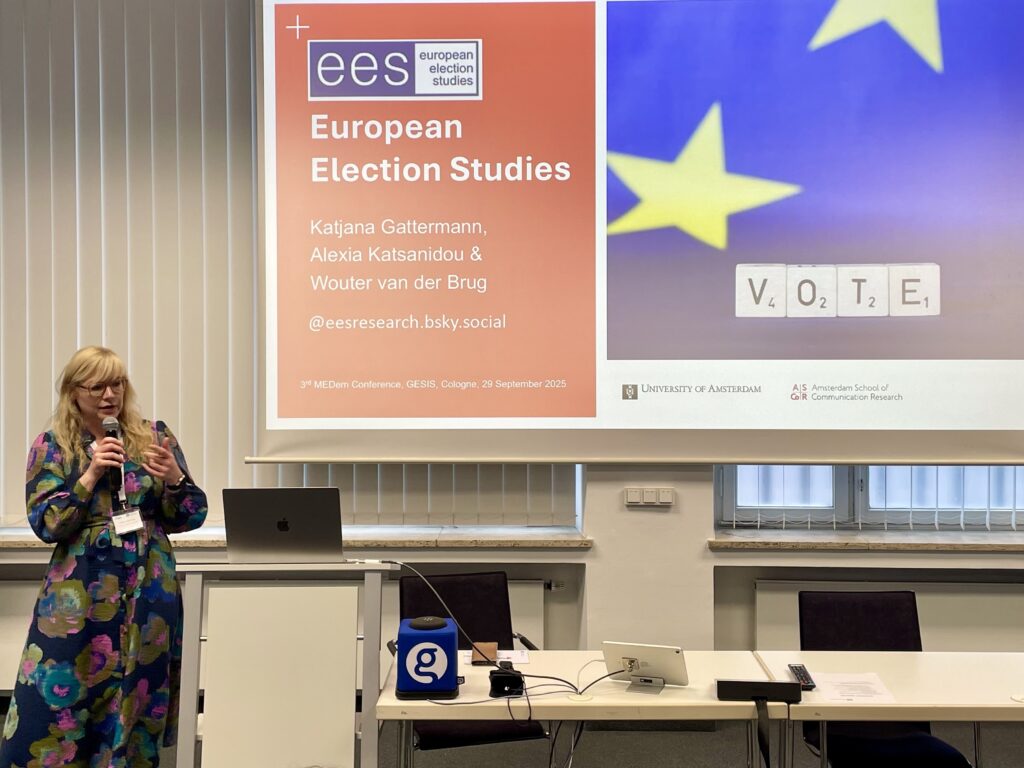
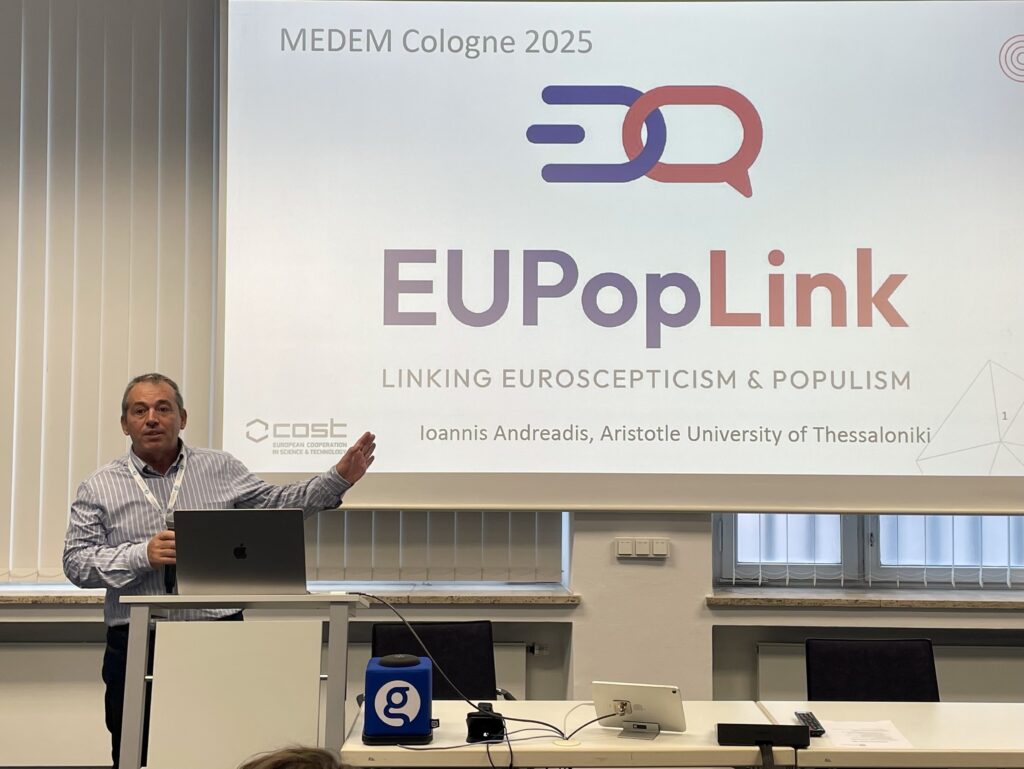
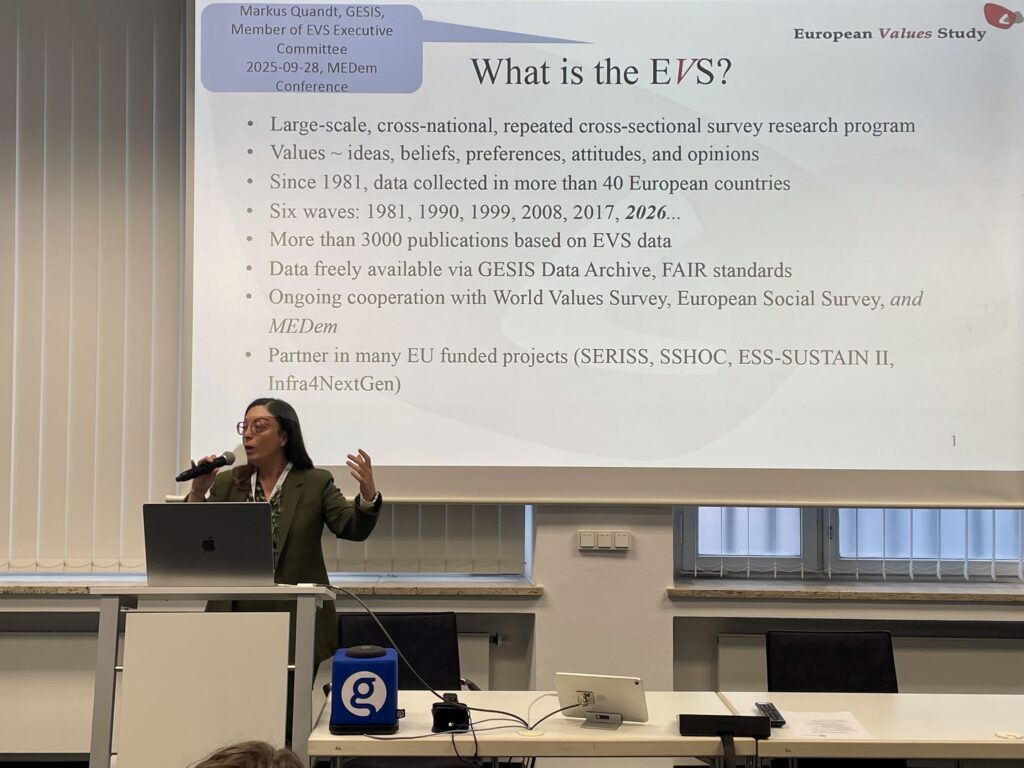
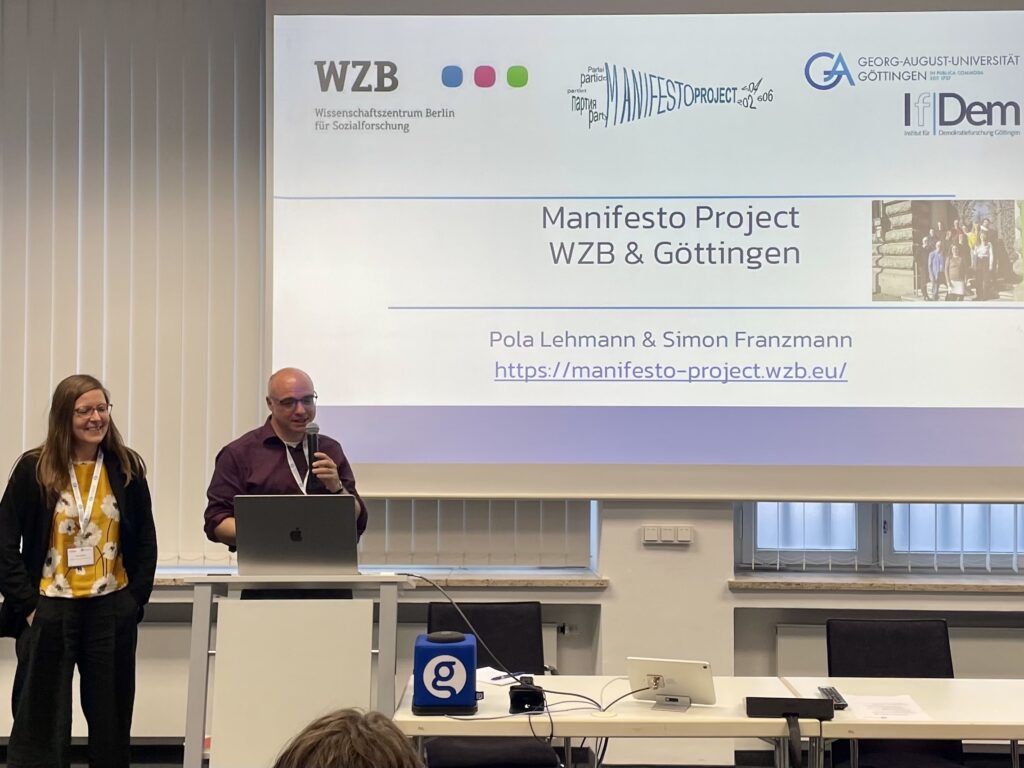
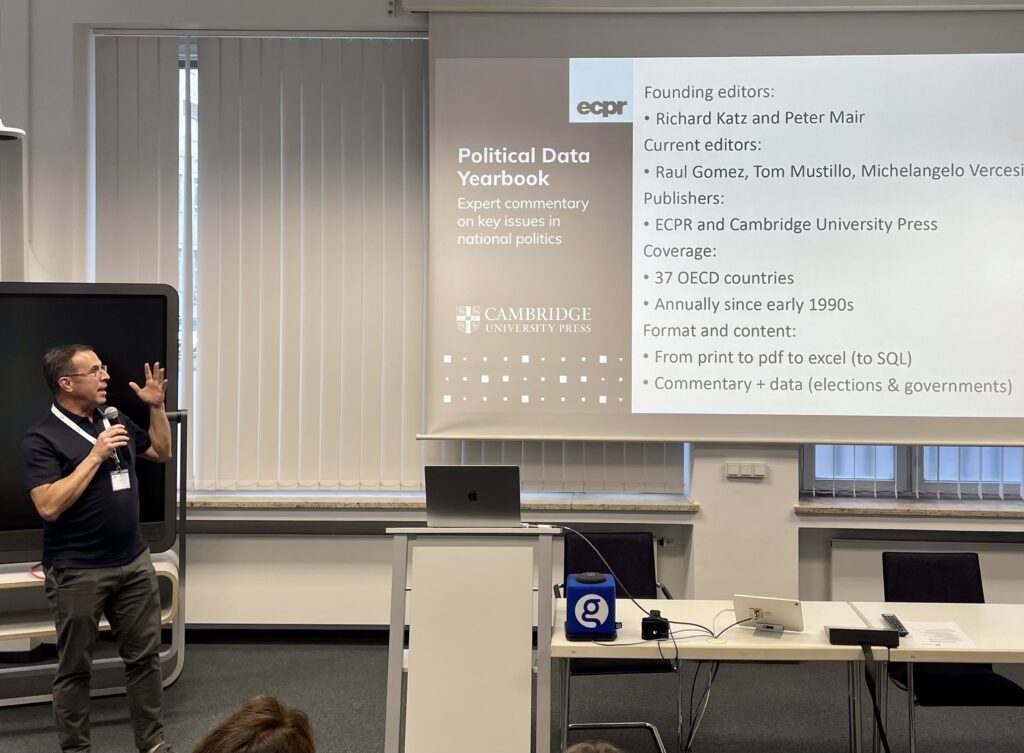
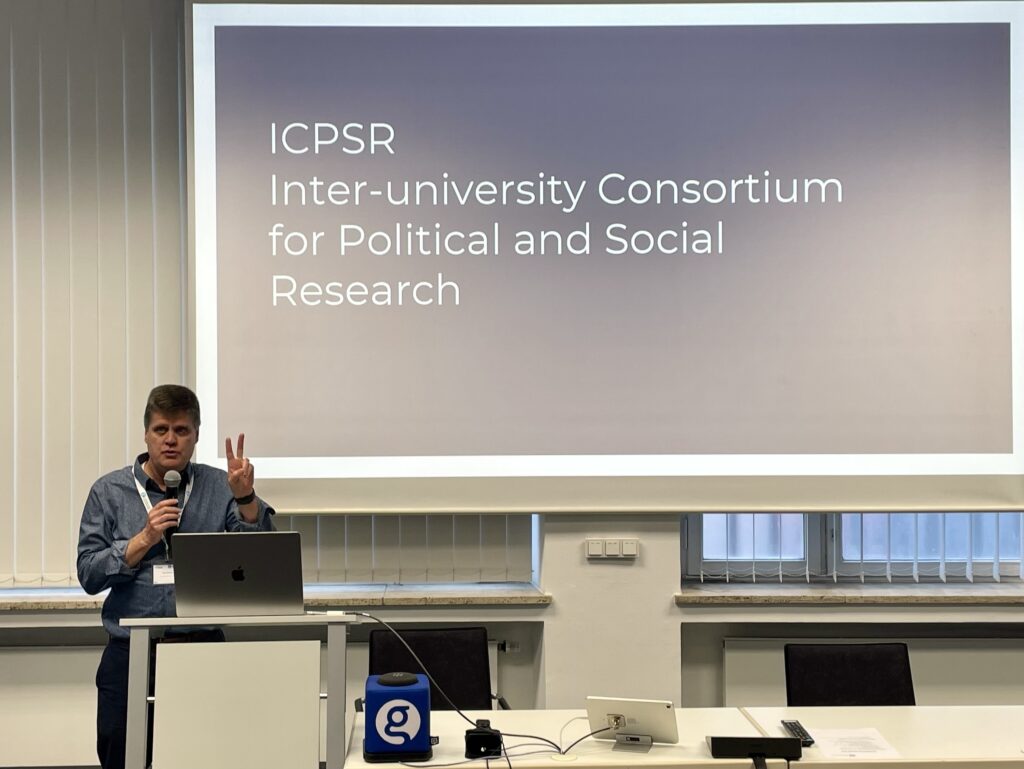
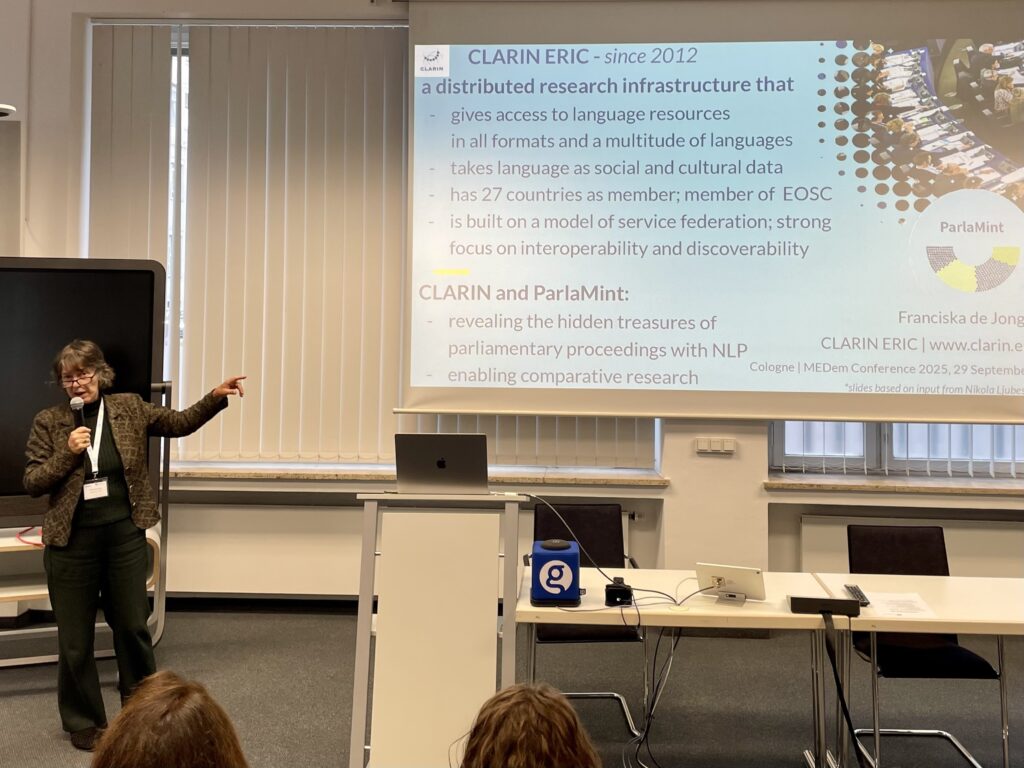
MEDem Data Network Representatives © Emmanuel Meillan
Day 2 - Tools, Stakeholders, and the Future of Training
The second day began with a new round of MEDem tool demonstrations: Sofia Gil-Clavel and Wouter van Atteveldt (VU Amsterdam, MEDem Service Center for Text and Multimedia Data) introduced AmCAT, which enables large-scale text analysis of political debates and media coverage. Sebastian Ziaja (GESIS, MEDem Service Center for Data Linkage) then presented HarDIS and PartyFacts, which develop a common ideological space by linking and harmonizing party data across countries, enabling researchers to compare party positions and democratic competition across contexts and over time. Along with ATLAS, these tools will become integral parts of the services that form the MEDem Platform.
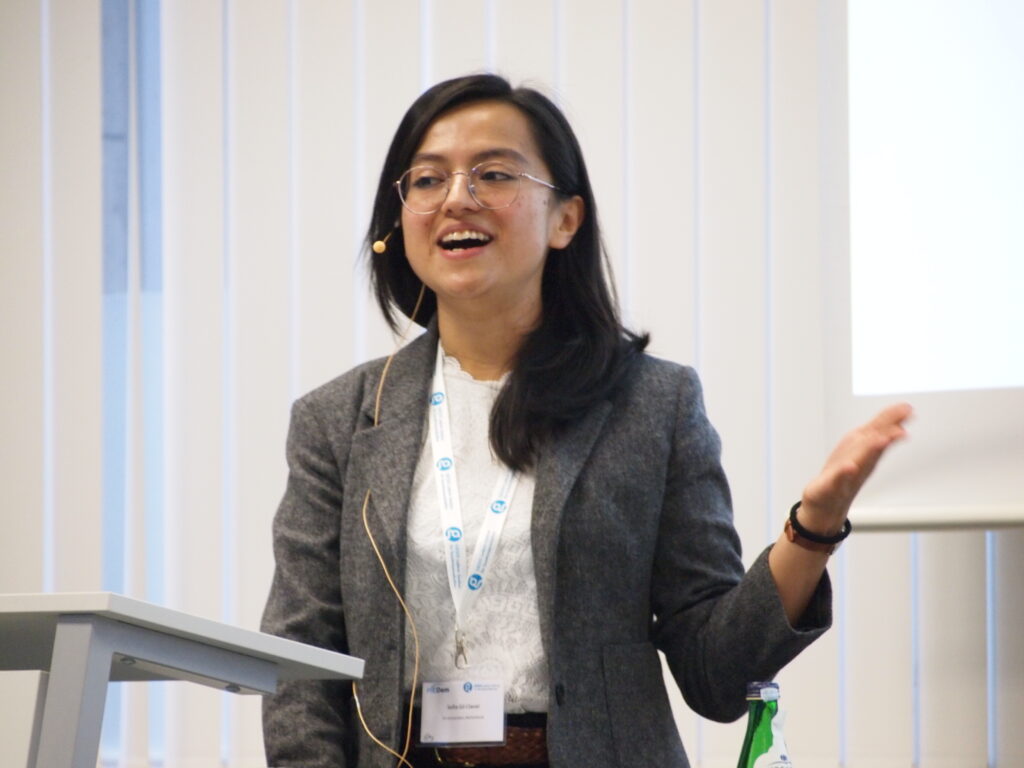
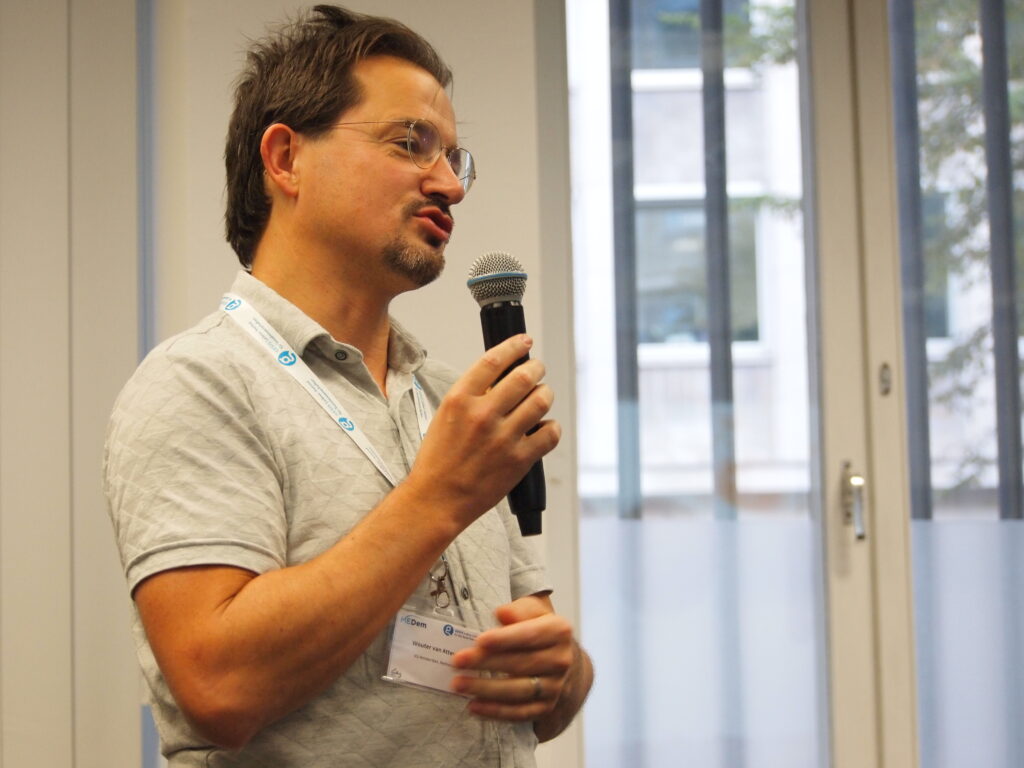
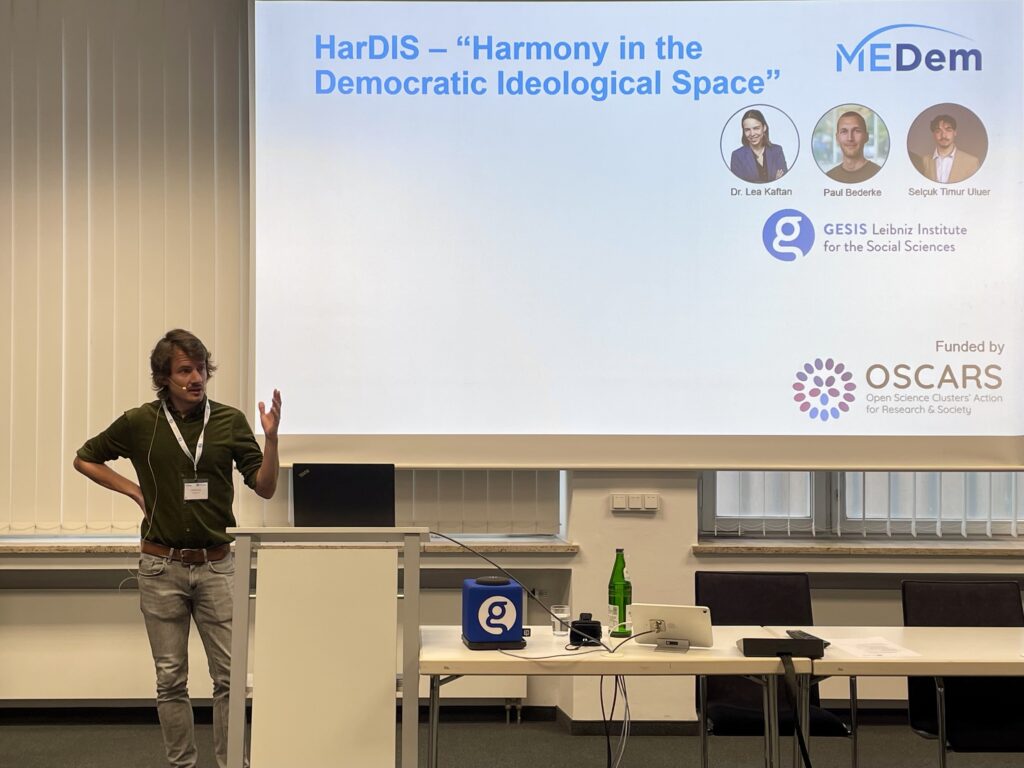
A lively stakeholder panel followed, exploring how democracy research can better connect with policymakers, media, and civil society. Contributions came from Ricardo Lafuente (J++), Michele Vannucchi (Openpolis), Cara Räker (European Center for Press and Media Freedom), and Mario Scharfbillig (European Commission’s Joint Research Centre).
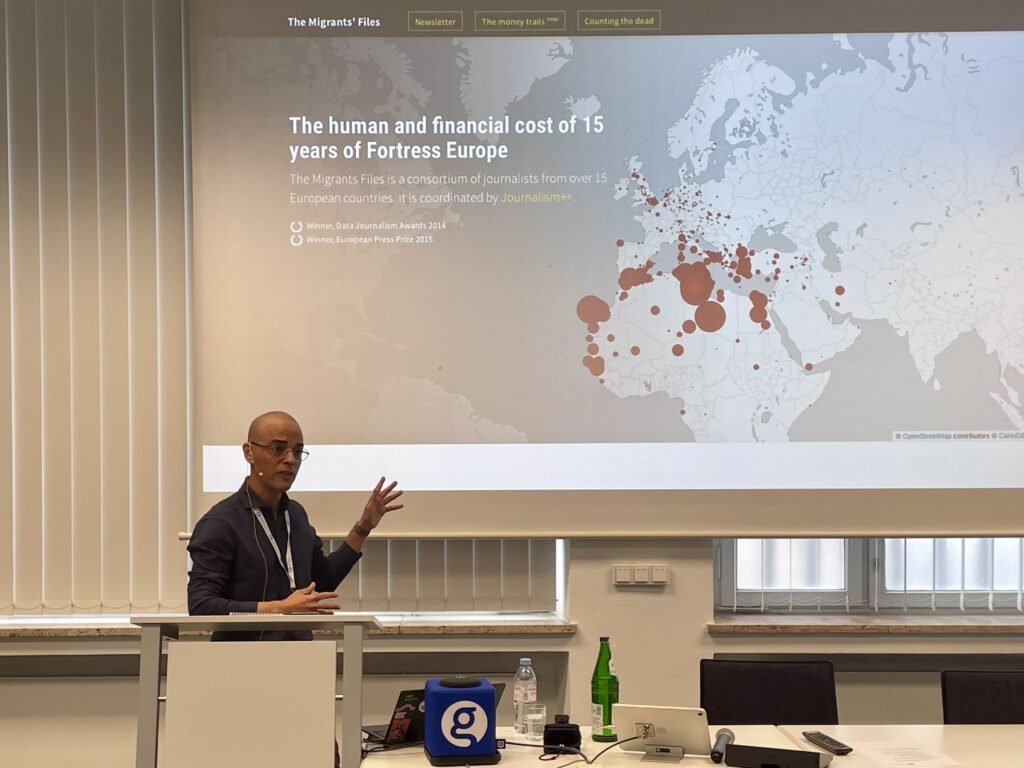
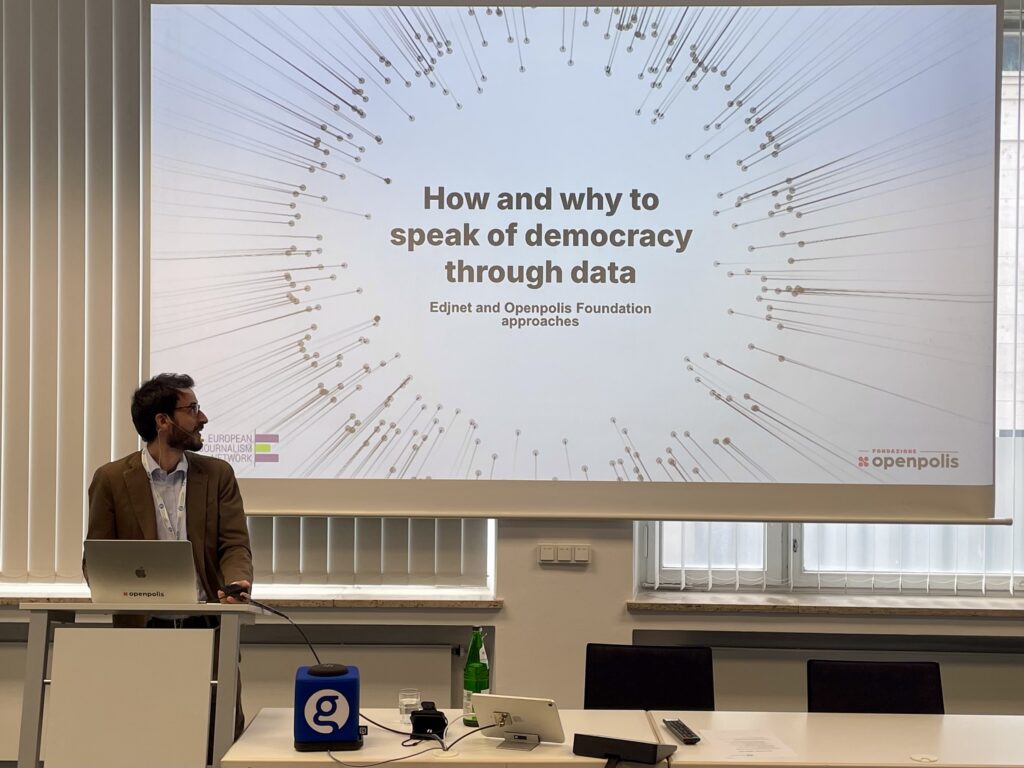
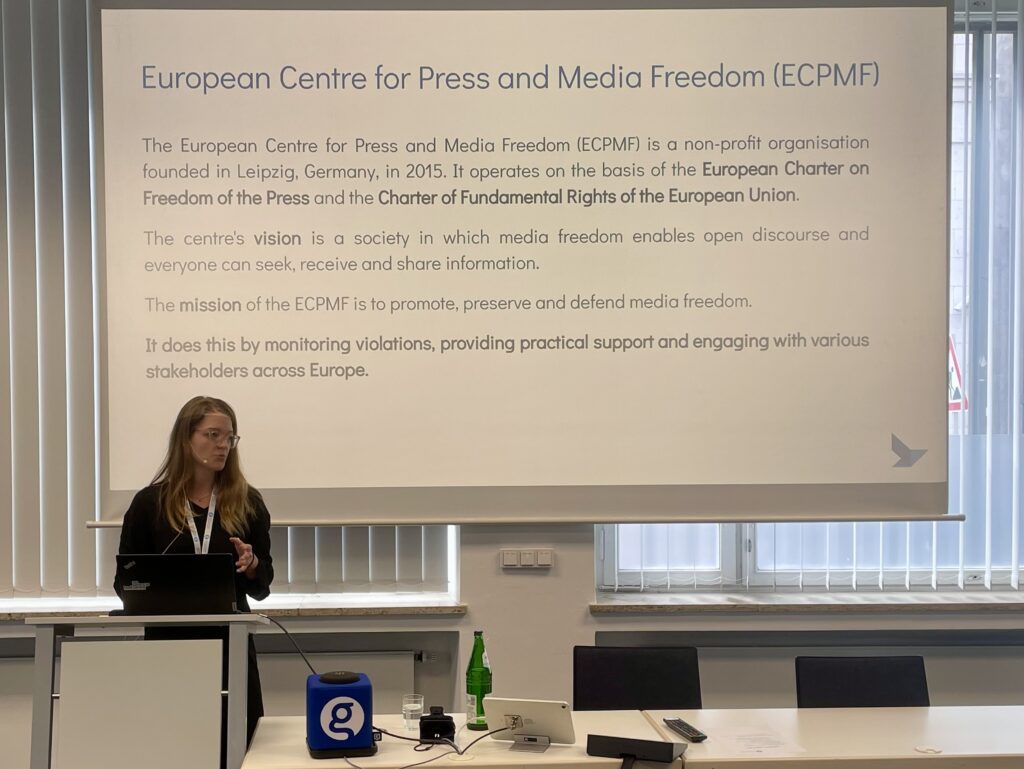
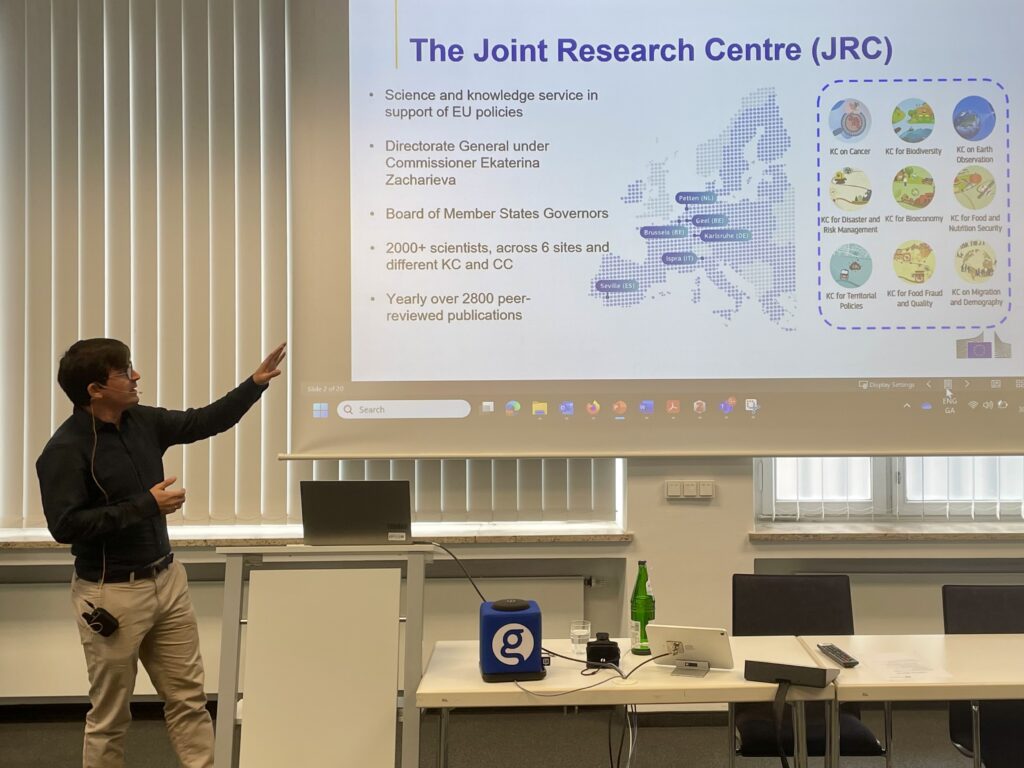
MEDem Stakeholders © Emmanuel Meillan
In the afternoon, Sebastian Stier (GESIS) presented his work on computational pathways in democracy research, showing how big data and computational methods are reshaping political and communication science. Then, Damian Guzek from the University of Silesia and Roksana Gloc from the Jagiellonian University introduced the MEDem Service Center for Training and Capacity Building, stressing that the future of democracy research relies on consolidating existing knowledge and making it widely accessible—particularly through training and workshops with a special focus on capacity building in CEE.
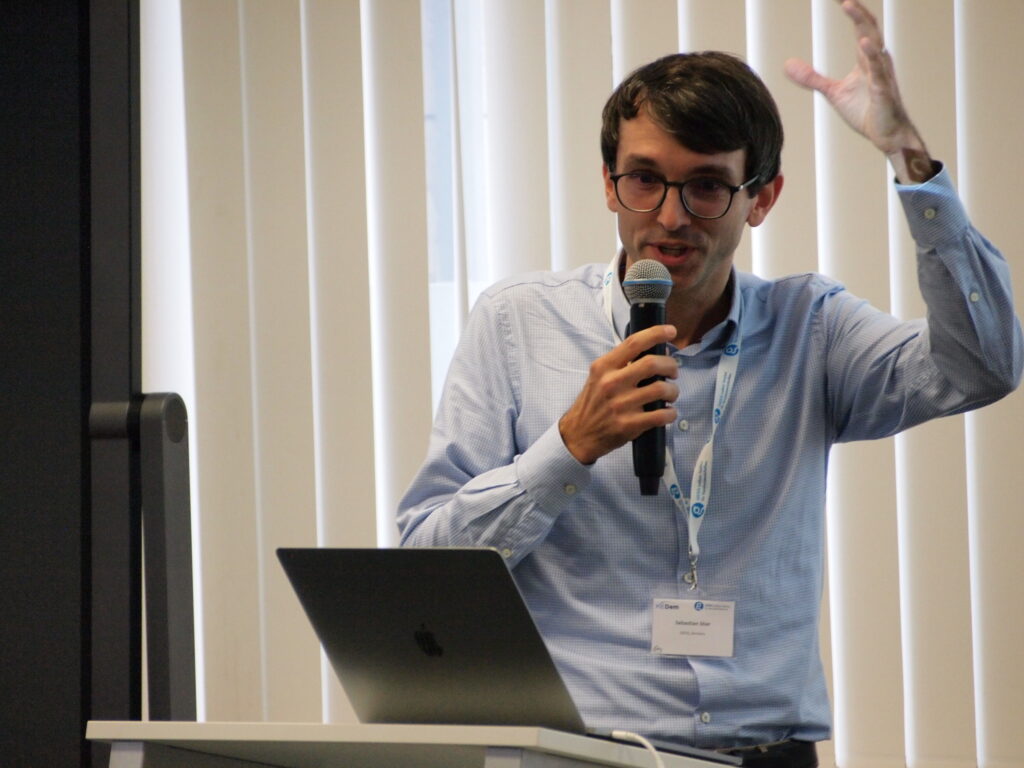
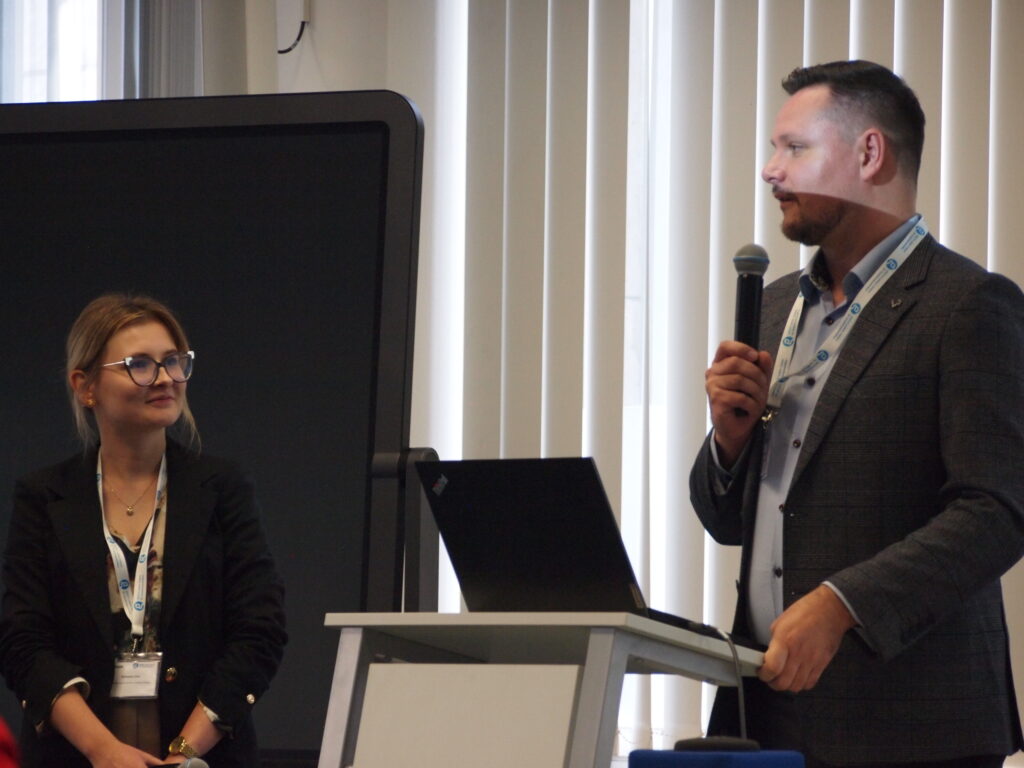
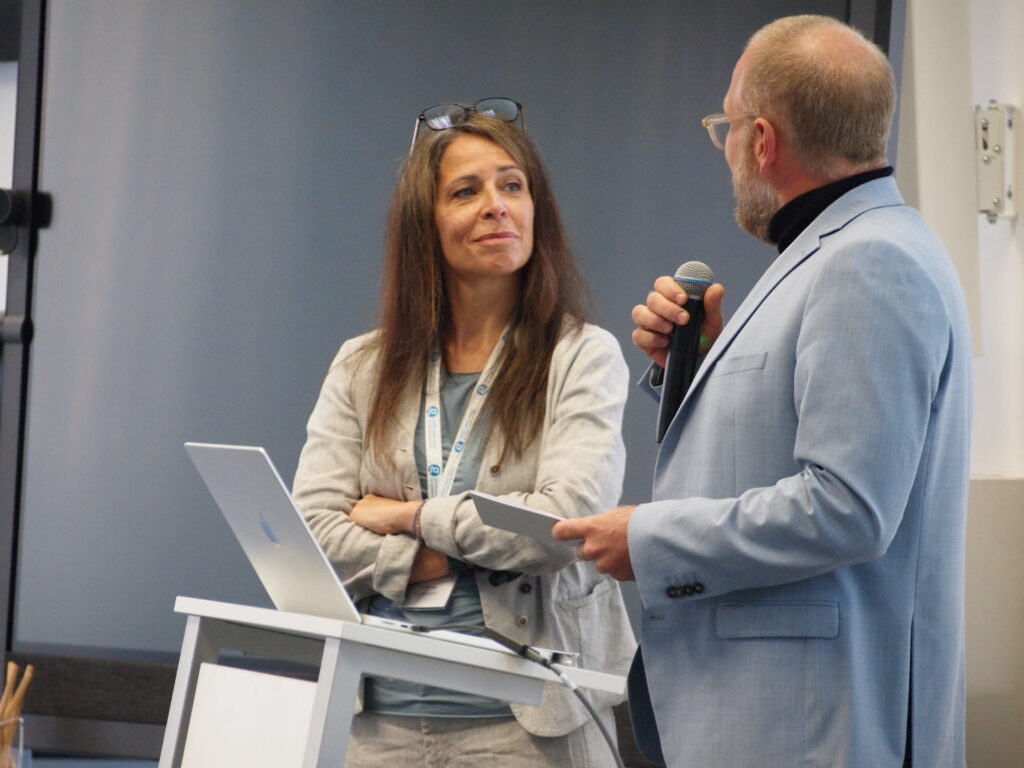
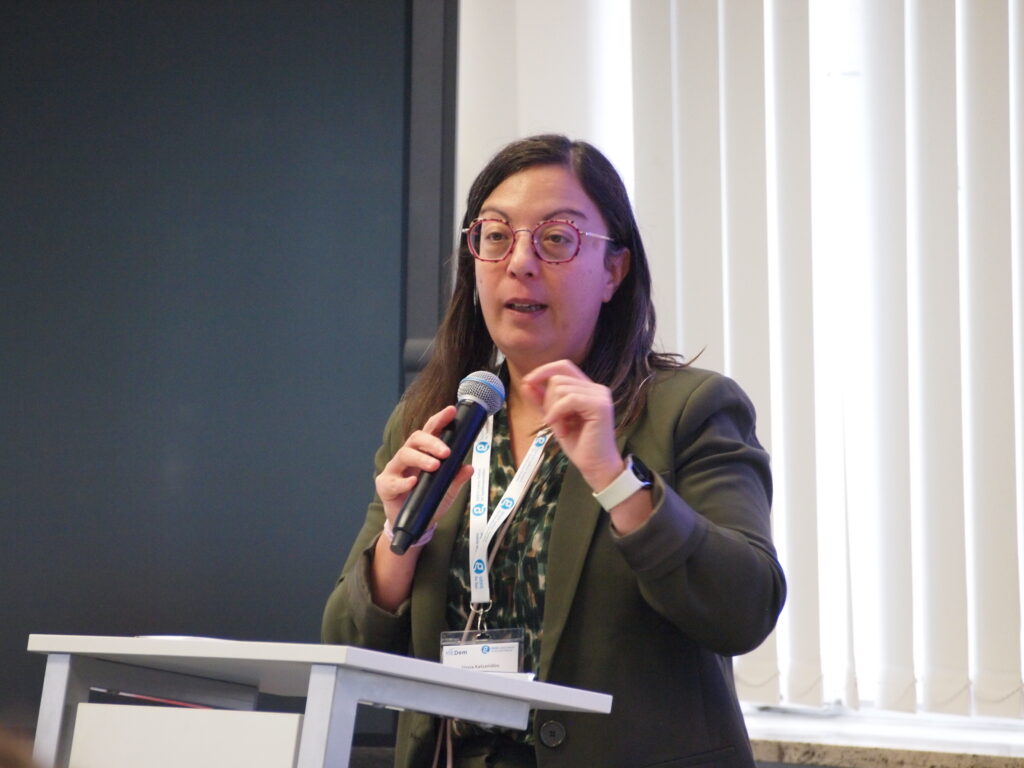
The conference concluded with remarks from Hajo Boomgaarden and Sylvia Kritzinger, who underlined MEDem’s mission to connect infrastructures, datasets, and researchers across Europe, while also reminding participants that this ambition must be pursued with clear and realistic expectations. Bringing the event to a close, Alexia Katsanidou returned to the role of infrastructures themselves, with a simple yet powerful reminder:
“Our role as an infrastructure is continuity.”
– Alexia Katsanidou (GESIS)

